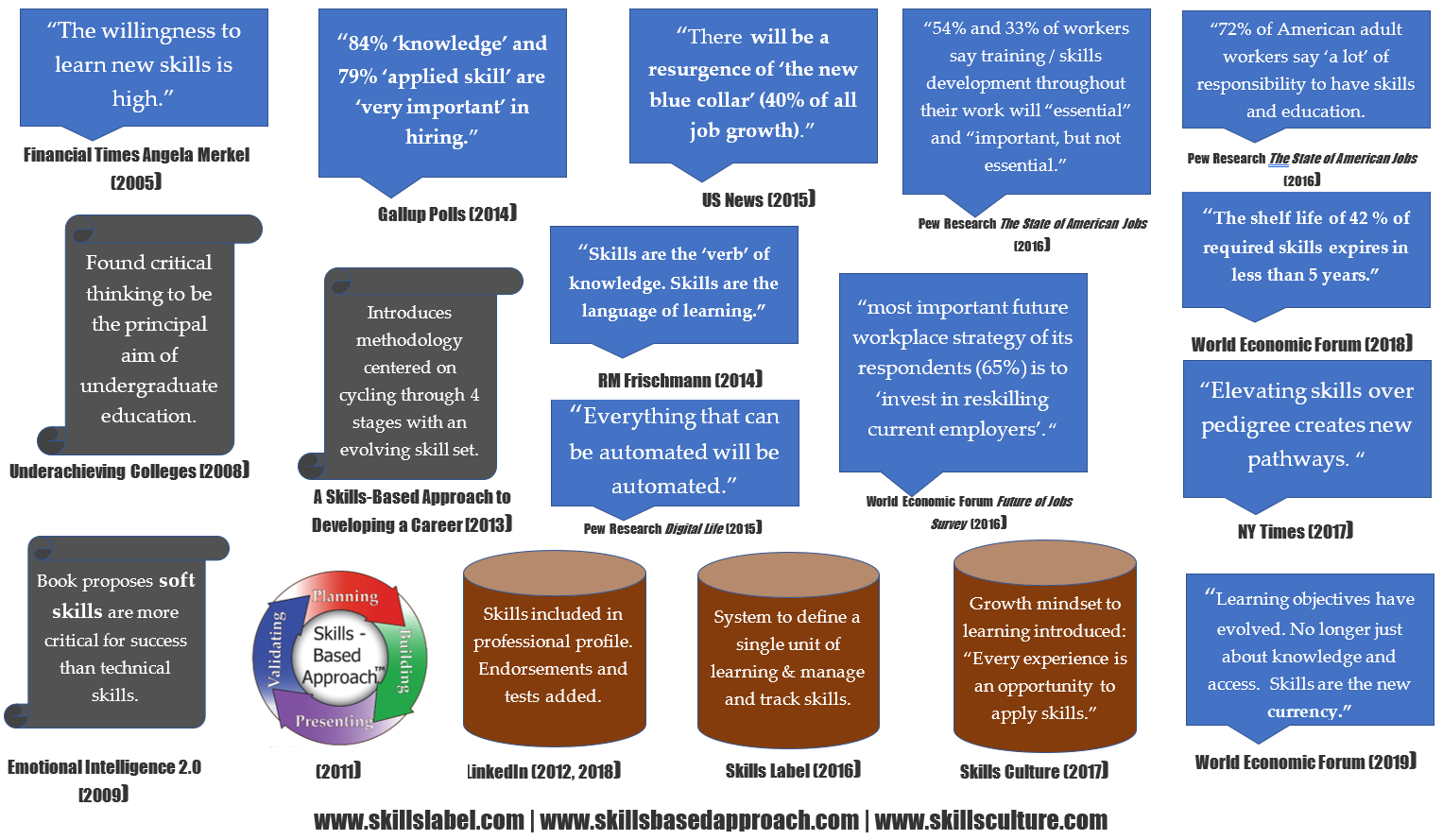The other day, I talked to someone about the relevancy of what we do today will be in 20 to 30 years from now. With the huge influence of AI and related technologies, I get skittish on making predictions in technology and learning. AI is going to be pervasive in every new technology and automate many white- and blue-collar jobs (some as high as 45% according to a PBS documentary).
But I do think skills and related methods, standards, and competencies (a measurement of skill, something like Skill Points ® 2.0) will be the foundation for how we define learning (education, higher education, and training), forecast workforce demand, and prepare for jobs and careers. Here is some of my reasoning:
Workers will need to agile in 2030, so willing to re- and up-skill. The current shelf life of 45 percent of skills is less than 5 years. So, we need to understand how to keep skills current and define learning in skills. Create shorter, nimble learning paths, designed to use all different types of resources. The current traditional degree and certification models probably do not work fast enough (though the same institutions will offer new accelerated programs).
Students and workers will use technology to augment the retrieval of ‘facts and information’ in 2030, so skills are more relevant in scaling knowledge. Human skills, like thinking (analytical and critical) and communication (listening, conversing, and teamwork) skills, are particularly valuable. Advanced technical skills will be needed to keep contributing to better systems.
There will be constant churn in the demand for technical skills in 2030. One organization claims a current database of 30,000 skills. Maybe there are a few hundred thousand skills in a 2030 database. Many of the jobs and skills in 2030 do not exist today.
Start seeing the fruits of labor with education and training standards (rooted in skills) in 2030. Education and training standards are largely based on skills and there are now systems to keep adding new standards, creating a cascading, layering effect. By 2030, education publishers, game and virtual reality creators, and trainers better align their resources to skills and related standards.
Static representations of education and professional experiences (like a resume, degree) are replaced with dynamic ones in 2030. (I think) there will be something like a scorecard to show a person’s complete skill set with a competency (level of achievement); this is like tallying Skill Points® for each skill. E-portfolios and personal websites showing work experience and projects prove skills competencies and mastery of subject matter.
